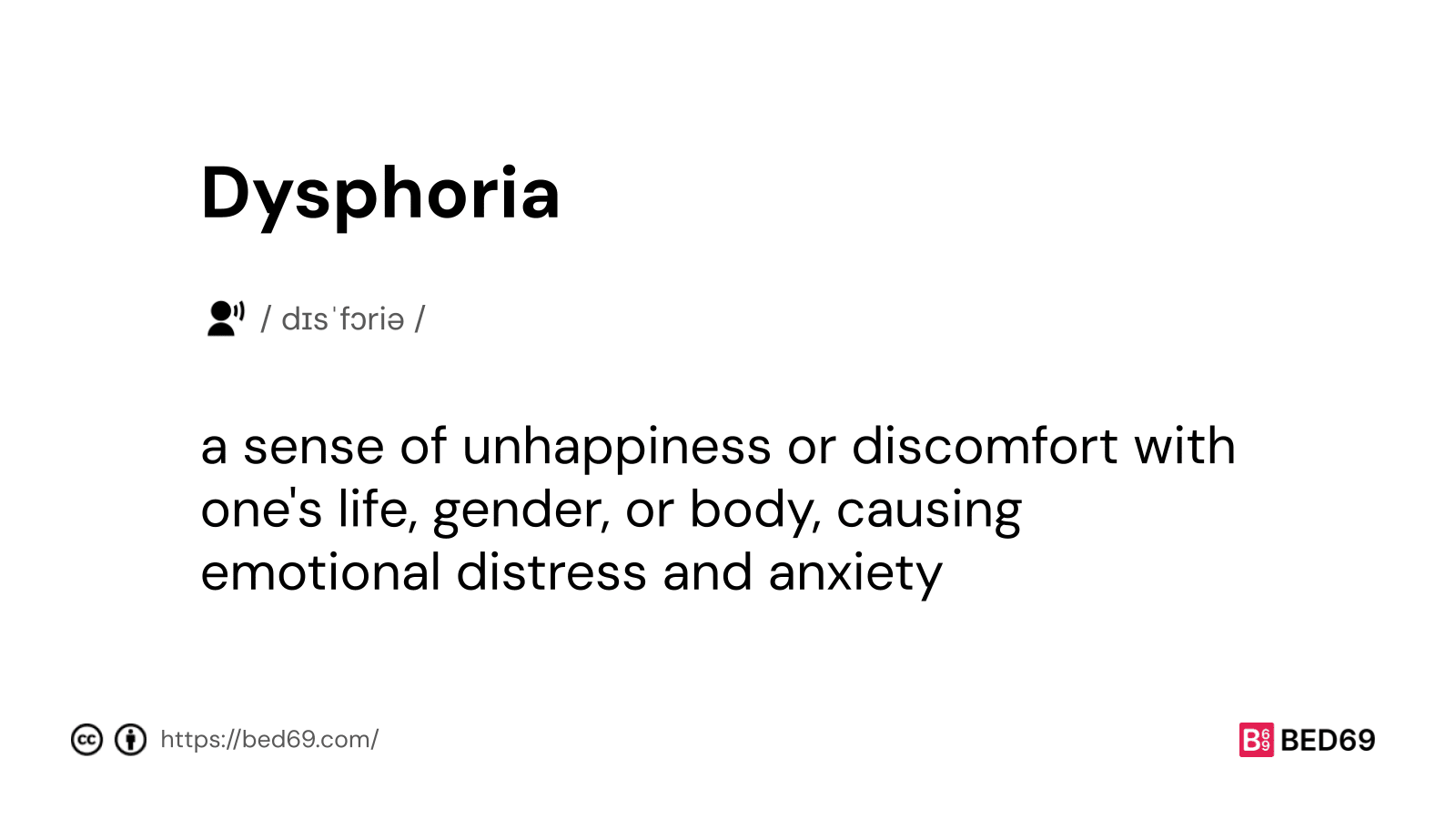What is Dysphoria?
Dysphoria is a feeling of being unhappy or uneasy with life. In sexual wellness, gender dysphoria is when someone is not comfortable with their gender, leading to anxiety and emotional distress. Body dysphoria is dissatisfaction with one’s appearance beyond normal occasional dissatisfaction.
Dysphoria pronunciation: / dɪsˈfɔriə /

How does Dysphoria Impact Relationships
Dysphoria can significantly affect relationships, creating challenges in communication and understanding between individuals. When one is experiencing dysphoria, it may lead to emotional distance, difficulty in expressing feelings, and strained interactions with partners, friends, or family members. The feelings of unease and dissatisfaction can influence how someone engages with others, potentially causing misunderstandings and conflict in relationships.
Moreover, dysphoria can impact intimacy and trust within relationships. The emotional distress and anxiety associated with dysphoria may hinder one’s ability to connect deeply with others, affecting the overall quality of relationships. Partners and loved ones may find it challenging to support someone experiencing dysphoria, leading to a sense of helplessness or frustration in trying to provide comfort and understanding.
In essence, dysphoria can create barriers to forming and maintaining healthy relationships. It is essential for individuals experiencing dysphoria to communicate openly with their loved ones and seek support to navigate these challenges together. Building empathy, patience, and understanding can help foster stronger relationships despite the impact of dysphoria.
Coping Strategies for Managing Dysphoria
Coping with dysphoria involves finding strategies to help manage and alleviate the feelings of unease and dissatisfaction. One way to cope is through self-care practices like engaging in activities that bring you joy and relaxation. This can include hobbies, exercise, or spending time in nature to improve your mental well-being.
Seeking support from trusted friends, family members, or mental health professionals can also be beneficial. Talking about your feelings and experiences with someone who understands and listens without judgment can provide comfort and validation. Additionally, practicing mindfulness techniques such as deep breathing or meditation can help you stay present and manage overwhelming emotions.
It’s important to remember that coping with dysphoria is a journey, and finding what works best for you may take time and experimentation. Be patient with yourself, and know that it’s okay to seek help when needed. Remember, you’re not alone, and there are resources available to support you on your path to managing dysphoria.
Explore other interesting terms:
